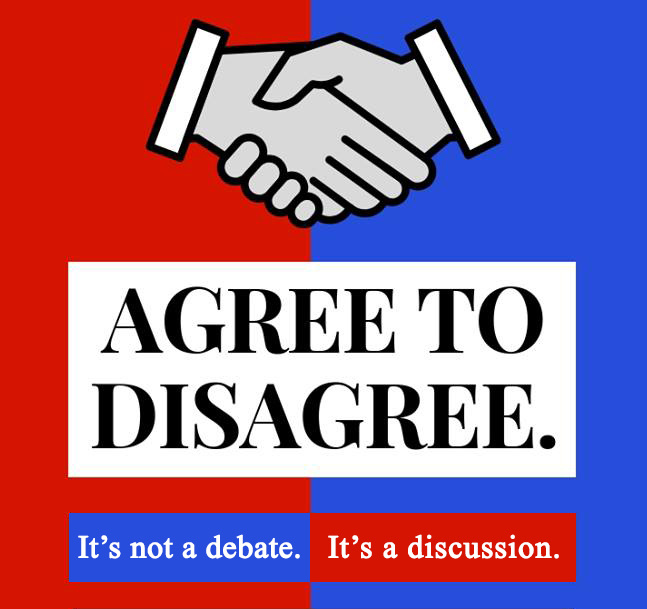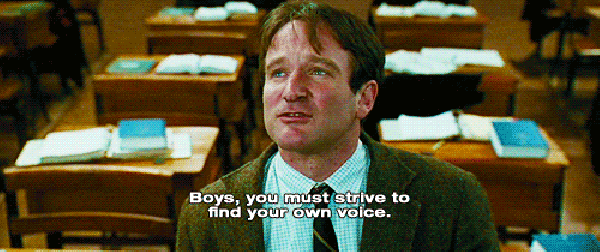By Gina Fernandez

“In order to be able to think, you have to risk being offensive”- Jordan B Peterson.
Living in a world where anything and everything is deemed offensive and can spark retaliation from the so called “social justice warriors” of Twitter and Instagram, it is hard for most people to express opposing thoughts without being subjected to a virtual walk of shame. It is evident that many people have lost the ability to properly dissect statements or arguments that oppose their views without immediately reacting with slanderous emotions, fueled with attacks, instead of civil discourse. This is incredibly foolish, as wanting to change the mind of others is virtually impossible when you resort to shaming instead of listening and having intellectual dialogue.
As the Jordan Peterson quote above states; the ability of mankind to think correlates with the risk of being offensive and being offended. If any form of disagreement against another person’s statement could offend that person, then it’s a risk we take with almost every daily conversation. However, it seems to be that everything and anything that is deemed offensive by those who believe that they are the moral compasses always gets met with emotional outbursts rather than constructive criticism. Therefore this article is aimed to demonstrate the importance of intellectual disagreements and why they are a necessity in order to progress closer to an ideal world.
PHILOSOPHY

Philosophy, which is defined as the study of the fundamental nature of knowledge, reality, and existence, was built on disagreements. Whether it were the Empiricists (those who believe knowledge is derived from experience) vs the Rationalists (those who believe knowledge is derived from reason) or disagreement with theocracies of the time, there is a common denominator and that is disagreement.
However, these are all intellectual disagreements where ideas that are disagreed upon are dissected and opposed using facts and reasoning rather than emotion. When Plato disagreed with Aristotle on theories of forms, he didn’t go out on the streets holding signs saying #CancelAristotle and #Fakenews, instead he analysed Aristotle’s arguments and opposed them with reasoning.
An example of outrage culture would be Socrates being put to death because his ideas that opposed the social norms of the time were deemed offensive and questioned the basis of Athenian morality. However, in recent times, Socrates’ ideas and quotes are increasingly popular and he is viewed as a visionary of his time.
Hence, this clearly shows us that ideas going against social norms could actually be great ideas and due to our lack of open mindedness, we failed to recognize this. However that being said, there are ideas and statements such as unwarranted threats of physical harm and beliefs that support evil acts such as rape that are just inexcusable .
“EMOTIONAL OUTBURSTS DURING DEBATES AND DISAGREEMENTS WILL END UP EMBARRASSING YOU”
I genuinely suggest watching Jordan Peterson’s and Cathy Newman’s debate on the gender pay gap and the patriarchy on Youtube after reading this article. It is the perfect demonstration of how emotions and assumptions made by Cathy Newman caused her to embarrass herself. She bombards him with questions, cuts him off and twists his words. Peterson on the other hand is calm, composed and factual which makes him victorious in this debate.
Cathy like many others who react with emotion rather than intellect tend to do something called “strawmanning” which is when you misinterpret the opposing idea so it’s easy for you to attack that person and twist their words.
The following is an example of strawmanning:
Person A: I think we should add some more oranges to the bowl of fruit
Person B (Straw man argument): So what you’re saying is that oranges are better than all other fruits in a bowl.
“Just when you think you know something, you have to look at it in another way. Even though it may seem silly or wrong, you must try.” – Mr Keating, Dead Poets Society

I remember when I first watched the phenomenal film “Dead Poets Society” and Mr Keating (played by the late Robin Williams) said the aforementioned quote when he asked his students why he made them stand on their desk. These words are some of the most powerful words ever spoken in a film and we all should adapt to this outlook. I, myself, was extremely arrogant, believed that my point of view was fully right and was susceptible to letting my emotions get the better of me during disagreements.
However, after hearing these words, I made a conscious effort to stop. I’ve now gained a deeper perspective on issues that I’ve discussed with people who have opposing viewpoints to mine and I’m also able to improve my own arguments and articulate them more intelligently. This outlook should be applied even when it comes to the most sensitive topics such as Feminism, Climate Change and Politics, it is important to listen to both sides before forming an opinion.
“AN IDEAL WORLD”
In order to reach the closest form of an ideal world, which to me, is one that is progressive and democratic, disagreements should be conducted in a civil way. As it can be seen throughout history, healthy and productive disagreements have allowed for society to further progress in terms of knowledge, technology, ethics etc.
I’d like to end with a quote said by one of the greatest Roman emperors and philosophers, Marcus Aurelius; “If someone is able to show me that what I think or do is not right, I will happily change, for I seek the truth, by which no one was ever truly harmed. It is the person who continues in his self-deception and ignorance who is harmed.”


